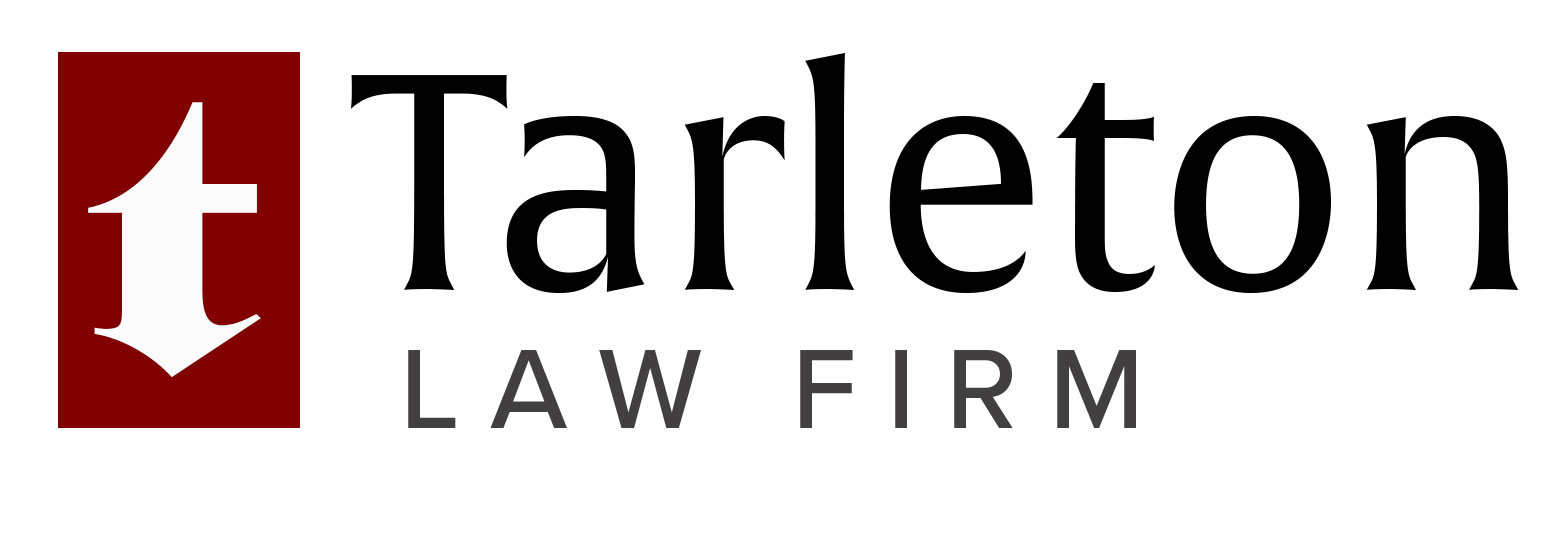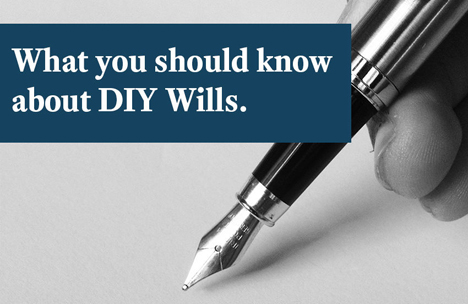CONSIDER THIS BEFORE WRITING A DIY WILL
Thinking about writing your own Will in Texas without an attorney? First, consider the following points.
We all know that a Will is one of the most significant legal documents you’ll ever sign, and it provides an opportunity to: (1) have your wishes heard (and followed) and (2) make sure things go smoothly for your family after you pass. An improperly written Will or incorrectly executed Will can end up failing to achieve either goal, and worst of all you won’t know until it’s too late whether you got it right. If a mistake was made, your family will have to find that out at the same time they are dealing with losing you.
Every adult should have a Will, and especially any adult who is married, has children, or owns a business. There are many cheap options out there that seem like a bargain compared to hiring an attorney (but, many estate planning firms – like ours – offer an initial consultation at no cost). Usually, the DIY process involves paying a company for access to a form to be completed be either a fill-in-the-blank template or an online questionnaire, which you then print out to execute. This process seems easy enough, but what are the risks?
What are the fundamental legal requirements for a valid Will in Texas?
The basic legal requirements in Texas, per Texas Estates Code Section 251.051, are that the Will must be: (1) in writing, (2) signed by the testator, and (3) attested by two or more credible witnesses who are at least 14 years of age and who subscribe their names to the Will in their own handwriting in the testator’s presence.
Under Texas law, a Will may also be handwritten. This is called a “holographic Will”. A holographic Will must still be signed by the Testator and must be “written wholly in the testator’s handwriting”, but it does not require two witnesses. While a holographic Will may be convenient, such Wills in our experience have caused substantial delay and conflict in an estate by failing to address many (if not all) of the important provisions discussed below.
The basic requirements for a Will to be valid can be deceptively simple. These requirements do not give guidance on two of the most important aspects of a Will: (1) making sure your wishes are clearly expressed in your Will, and (2) making sure your Will is easy to probate in Texas by its format and execution.
WHAT ARE THE RISKS OF DIY WILLS?
You wrote the wrong thing.
Simply put, the biggest problem with a DIY Will is that it is very easy to take a form and write the wrong language in it. Simple mistakes in wording or even putting the wrong name down can lead to very expensive headaches for your family or beneficiaries.
Some common mistakes we have seen in the wording of a Will are:
> You didn’t consider alternate scenarios. Parents naturally assume that their children will outlive them, but what if a child dies before the parent? A Will should describe who receives your property if a beneficiary you named in your Will dies before you do. This requires thinking through more than one “what if” scenario, for example: what if your spouse dies before you do? what if your child dies before you do? what if money in your estate would pass to a minor child? These scenarios are only the starting point in a properly drafted Will, and an attorney can help explain how to address each of them.
> Forgetting to name an (independent) executor in your Will. It is not necessary under Texas law for a Will to name an executor to be valid, but failing to do so can delay probate and add additional expense to the process. It can also lead to disputes among family members over who can be trusted to manage the assets of your estate. Also, some Will forms omit the necessary language for an executor to serve as an “independent executor”, which means the executor serves without court supervision after appointment. In such cases, if your beneficiaries do not agree that the executor may serve independently, then the court will supervise the executor, adding significant cost to handling the estate in court and attorney fees.
> Naming the wrong person as executor in your Will. Often, people will name a friend or family member to serve as executor. The basic goal of a Will is to make sure your property passes efficiently to the people or organizations you want (i.e., your beneficiaries). Imagine naming someone to serve as executor who has a terrible relationship with the beneficiaries – the person you named as executor may want to serve just to cause a headache! If the named executor wants to serve despite the wishes of a beneficiary, settling that dispute will waste time and resources that could have been avoid by choosing an appropriate executor in the Will.
> You left in form language that didn’t apply to you. A DIY Will, whether through a template or an online service, may include some of the same provisions typically included in a Will prepared by an attorney. The problem is that the form or the online service won’t tell you whether such language is contrary to what you have written elsewhere or creates an ambiguity in your Will. Working with an attorney can make sure that the Will as a whole makes sense.
> You included things you don’t own. Or, the total gifts under your Will are bigger than your estate. It is not uncommon for a Will to make a specific gift of property, but sometimes the description is incorrect or the person making the Will incorrectly understood their ownership rights in a specific property. For example, if you share ownership of real estate with other individuals, your Will may only transfer your share of the property, but not the interest of other owners in the property. A similar problem is when a Will lists several large specific bequests that leave nothing for the remainder beneficiaries under the Will. For example, a person with an estate worth $300,000 might create a Will that gifts $20,000 to five individuals, thereby leaving $200,000 for the remainder beneficiaries – but, if that same person dies with an estate of $80,000, then nothing would be left for the remainder beneficiaries because all of the estate would first go to paying the specific bequests.
> Illegible handwriting in handwritten Wills. If no one can read portions of your Will, it may be difficult or impossible to make sure that your wishes are followed.
You didn’t execute it correctly.
Perhaps you did take the time to draft a clearly written Will. That won’t be enough to make the Will valid if the Will doesn’t comply with the signing and witnessing requirements. Unfortunately, we regularly see Wills where the wording wasn’t the issue but instead the problem was the failure to adhere to the formalities of creating a Will, such as the following examples.
> You didn’t sign it. You may have taken the time to prepare a Will and thought through all contingent scenarios, but if you never signed the Will then it is not a valid Will.
> Not enough witnesses. The basic non-holographic Will requirements require two witnesses for a Texas Will to be valid, but what if you only had one witness sign? Or none? Perhaps that seems unlikely, but we have seen it happen more than once. A DIY Will may contain the correct number of signature blocks for witnesses, but it is up to you to follow through with obtaining the necessary signatures. If less than two witnesses signed the Will (and it’s not a holographic Will), then the Will is invalid.
> It was witnessed improperly. In Texas, for a Will to be valid, each witness must sign in the testator’s presence (the testator is the person who wrote the Will). What if a Will was left for a witness to sign while the testator went elsewhere? Then that witness failed to sign properly, and there are lawsuits that have been fought over just such a mistake. A pre-printed form will provide signature blocks but will fail to ensure you follow the formalities for how the Will must be signed.
> You didn’t include a self-proving affidavit. A self-proving affidavit is not necessary for a Will to be valid, but it can avoid delay in the probate process by avoiding the necessity of having witnesses testify about the Will. A self-proving affidavit is an additional clause at the end of the Will sworn to by the witnesses and testator, and which recites certain facts surrounding the execution of the Will. The requirements for the affidavit are provided in Texas Estates Code Sections 251.101-107. Without an affidavit, witness testimony will be necessary to have the Will admitted to probate, when such testimony could have otherwise been avoided.
But you came here wanting to know about using a DIY Will, right? In some circumstances a DIY Will might be adequate – for example, if you are single without children and have minimal assets. At best, however, such documents are usually just “ok” and the money saved may not be justified in light of the risk of making an error through incorrect wording or improper execution. A DIY Will may seem like an easy solution, but it can result in problems down the road, such as costing your family or loved ones money in settling disputes.
Don’t risk your legacy. Having your affairs in order can give peace of mind to you and those you care about. As discussed above, there are many risks to the DIY Will method for a legal document that too often is described as “simple”. Even if your situation is “simple”, see an estate planning attorney and make sure your Will gets done properly.
WHAT NOW?
This article explains only some of the most common mistakes found in Wills and is not all inclusive. For more information, contact us at info@tarletonfirm.com or at (214) 935-9004. We are located in Dallas, but serve clients all over Texas.
This article is intended for general information purposes only. It does not constitute legal advice or create an attorney-client relationship. If you have questions about your individual circumstances, you should consult with an experienced Texas estate planning attorney to determine how applicable laws apply. This publication is based on the most current information at the time it was written. Since it is possible that the laws or other circumstances may have changed since publication, please call us to discuss any action you may be considering as a result of reading this publication.

